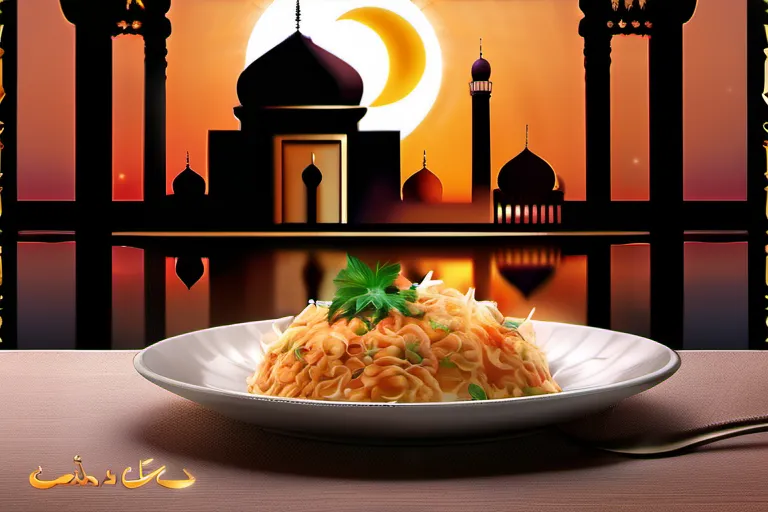Understanding the dietary, financial, and ethical aspects of Halal in Islamic law
In this article, we will delve into the fascinating world of Halal, exploring its significance within Islamic teachings, the principles that govern it, and its far-reaching impact on daily life. We’ll cover everything from dietary guidelines to financial transactions, shedding light on the importance of this essential concept in Islam.
The Basics of Halal: An Overview
Halal, a term deeply rooted in Islamic law, can be seen as a bridge that connects the physical world to spiritual purity. How does one truly understand its profound implications? At its core, Halal is about ensuring that everything we consume and use aligns with the teachings of Islam. This concept spans across multiple dimensions: dietary guidelines, financial transactions, and even personal conduct.
The origins of Halal can be traced back to the Quranic verse Inna al masakinina la yadurru al minku, meaning ‘Indeed, those who are weak will not be wronged.’ This verse underpins the ethical framework that guides what is considered permissible in Islam. The purpose of Halal, therefore, is not merely to avoid sin but to promote a lifestyle that brings closer the presence of Allah and fosters a sense of community.
From a financial standpoint, Halal transactions must adhere to principles that are just and fair, ensuring transparency and honesty. It involves a deeper understanding of contracts and agreements, making sure they do not involve interest or gambling—two practices strictly prohibited in Islamic finance. The role of Halal in personal conduct extends beyond the obvious dietary restrictions; it includes maintaining cleanliness, speaking truthfully, and acting with integrity.
Imagine walking through a bustling bazaar where every stall is adorned with the Halaal sign, symbolizing not just what you eat but how you live. This holistic approach to living in accordance with Islamic teachings can transform everyday practices into acts of worship, making each choice a step towards spiritual enlightenment.
In essence, Halal is more than just following rules; it’s about embracing a lifestyle that promotes peace, justice, and righteousness. As you navigate through your daily life, ask yourself: am I truly living in accordance with the principles of Halal? The answer might guide you towards a deeper understanding of this beautiful practice.
By delving into these aspects—dietary guidelines, financial transactions, and personal conduct—you begin to see how Halal intertwines seamlessly with every facet of life. It’s not just about what you eat but who you are as a person in the eyes of Allah.
Halal Dietary Guidelines
When we delve into what Halal means, it’s not just about avoiding forbidden foods; it’s a profound journey into the heart of Islamic dietary guidelines. Imagine walking through a lush garden where every plant and fruit is permissible—this is akin to navigating the world of Halal food according to Islam. But first, we must understand the process that ensures these plants and animals are Halal. Let’s explore how slaughtering an animal according to Islamic law resembles opening a door to purity.
In the traditional method of slaughter, a sharp knife is used swiftly to cut the throat, carotid artery, and jugular vein. This act symbolizes a swift release of life—a metaphor for the seamless transition from this world to the next. The significance lies not just in the technique but in the intention behind it; the act is done with niyyah, or sincere intent, invoking the name of Allah as a reminder of our ultimate Creator.
The process of ensuring cleanliness and purity before slaughter is equally important. Just as a mirror reflects only when clean, so too must the meat be cleansed before consumption. The animal must be ritually purified with water and blessings invoked upon it. This step ensures that we approach food with reverence, recognizing its role in sustaining life.
Now, let’s consider the Halal foods themselves. Think of a pantry where only certain spices are allowed—saffron, cardamom, and cinnamon for their unique flavors but also for their symbolic purity. Similarly, grains like wheat, barley, and rice are widely acceptable in Halal cuisine. On the other hand, pork is strictly forbidden, much like how certain poisons are not to be touched. The prohibition of alcohol stands as a reminder against intoxication, symbolizing clarity and self-control.
Understanding these dietary guidelines can transform our approach to food, making each meal a conscious act of faith. By knowing what Halal means in Islam, we honor the principles that guide us in everyday life. So, as you prepare your meals or visit a grocery store, reflect on the journey behind every permissible item—each one representing a step towards spiritual and physical well-being.
Halal Finances: Investing in Compliance
Halal finance might sound like a niche topic, but it’s a world bustling with principles and practices that can transform how you manage your investments. Have you ever wondered if there’s a way to invest without compromising your religious beliefs? Welcome to the realm of Halal finance!
At its core, Halal finance is about ensuring that all financial transactions adhere to the principles laid out in Islamic law. It’s like navigating through a dense forest where every step must be mindful and intentional, guided by the light of Shariah law. This law sets clear boundaries on what’s permissible and what isn’t, making sure every transaction is ethically sound.
One key area in Halal finance is the concept of Sukuk bonds. These are essentially financial instruments that represent ownership shares in a pool of assets. Think of it as investing in a well-maintained orchard instead of an empty plot of land. The benefits? You get regular returns and the satisfaction of knowing your investment is aligned with Islamic principles.
However, every path has its challenges. While Sukuk bonds offer a way to invest responsibly, they come with their own set of risks. Market fluctuations can affect their value, just as unpredictable weather might impact an orchard’s yield. It’s important to understand both the potential rewards and the associated risks before diving in.
In the end, embracing Halal finance is about more than just money; it’s a commitment to integrity in your financial dealings. By choosing investments that comply with Islamic law, you’re not only supporting ethical practices but also aligning yourself with a broader vision of fairness and justice. So, are you ready to explore this path? It might lead you to unexpected treasures.
The Ethical Dimensions of Halal
The ethical dimensions of Halal are like a compass guiding us through the complexities of modern life. In Islamic law, the concept of Halal extends far beyond just what we eat; it encompasses every aspect of our financial dealings and social interactions. How many times have you wondered if your investments truly align with your values? Or pondered whether the products you use are ethically sourced?
In the world of business, Halal principles demand honesty, fairness, and justice. Imagine a marketplace where transactions are transparent, contracts are clear, and every deal is conducted with integrity. Wouldn’t that be a refreshing change from the cutthroat competition often seen in today’s economic climate? Islamic law emphasizes integrity (Istislah), ensuring that businesses operate in the best interest of all parties involved.
Consider the impact of ethical business practices on larger social issues. How can Halal finance contribute to sustainable development and poverty alleviation? Sukuk bonds, for instance, are not just about making money; they’re part of a broader strategy to invest in projects that benefit society as a whole. By supporting education, healthcare, and infrastructure, these investments can transform communities and foster economic growth.
Moreover, ethical business practices go beyond financial transactions. They extend to how companies treat their employees, the environment, and consumers. Can you imagine a corporation that prioritizes ethical treatment of its workers over profit margins? Such a company would not only be profitable but also deeply respected in the community. The principles of Halal encourage this kind of holistic approach, ensuring that businesses operate with compassion and fairness.
The ethical dimensions of Halal are not just theoretical; they have real-world applications that can shape our daily lives. By embracing these principles, we can create a more equitable and just society where everyone benefits from the economic system. As Muslims, we have a responsibility to ensure that our actions align with our faith. How will you contribute to this ethical framework in your own life and business dealings?
The Role of Halal in Modern Society
The Role of Halal in Modern Society: How Halal Shaped Industries and Lives
Imagine walking into a grocery store where every product seems to carry a special label, indicating its compliance with Islamic law. This isn’t just a niche market; it’s a global phenomenon. Halal has transformed various industries, from food production to finance and cosmetics. But what exactly does this mean for Muslims living in today’s interconnected world?
Let’s delve into the role of Halal in modern society by exploring its impact on key sectors. For instance, the food industry has seen a surge in demand for Halal-certified products, not just among Muslim communities but also as part of broader consumer trends that value transparency and authenticity.
Then there’s the financial sector where Islamic banks and finance companies have thrived, offering products and services that align with Shariah principles. This includes mortgage options that avoid interest charges or investment strategies that stay away from certain industries like gambling. The challenge here is ensuring that these institutions remain ethical and transparent in their dealings.
In the cosmetics industry, Halal certification has become crucial for products that meet Islamic standards of purity and cleanliness. This involves rigorous testing to ensure no animal by-products are used without proper slaughter methods, a significant shift from traditional practices.
The journey of Halal in society is not without its challenges. Muslims navigating a globalized world face the dilemma of reconciling their cultural identities with the demands of a multicultural marketplace. Certifying products as Halal involves more than just following strict guidelines; it’s about maintaining integrity and trust within communities.
As we look ahead, the future of Halal lies in its ability to adapt while preserving core values. Whether it’s through innovative technology or community engagement, Halal continues to be a beacon of hope and identity for many Muslims around the world.
Frequently Asked Questions: A Closer Look at Halal
Why do certain foods fall under the category of Halal, while others are deemed Haram? It’s like trying to sort out a giant puzzle, where each piece must fit just right. The criteria for Halal in Islam revolve around avoiding anything that contradicts Islamic principles and promoting health and well-being. For instance, pork is forbidden due to its consumption being considered impure in the Quran. This prohibition goes beyond mere religious ritual; it reflects a broader ethos of maintaining moral and physical integrity.
But what about Kosher compared to Halal? Isn’t it just a matter of dietary restrictions, like eating on different plates for meat and dairy products? While there are similarities in terms of separation of meat from milk, the processes differ significantly. Kosher certification involves specific procedures such as checking for blood stains before slaughtering animals and ensuring that only certain parts of the animal can be eaten. In contrast, Halal focuses more on the intention and method of slaughter, with a prayer before the process to ensure reverence.
How does one certify food as Halal? It’s akin to embarking on a rigorous journey of verification. The process begins by choosing a reputable certifying body that adheres to strict guidelines. They inspect every aspect, from the farm where animals are raised to the slaughterhouse and processing plant. Certifiers look for compliance with Islamic rulings, ensuring that all products meet the necessary standards before granting certification. This meticulous approach guarantees consumers that what they consume is in line with their religious beliefs.
Conclusion
 By gaining a deeper understanding of Halal, we can appreciate its rich history, its role as a guiding principle for Muslims, and its ongoing relevance in modern society. Whether you are a seasoned Muslim or simply curious about Islamic practices, this comprehensive guide offers valuable insights into the world of Halal.
By gaining a deeper understanding of Halal, we can appreciate its rich history, its role as a guiding principle for Muslims, and its ongoing relevance in modern society. Whether you are a seasoned Muslim or simply curious about Islamic practices, this comprehensive guide offers valuable insights into the world of Halal.











